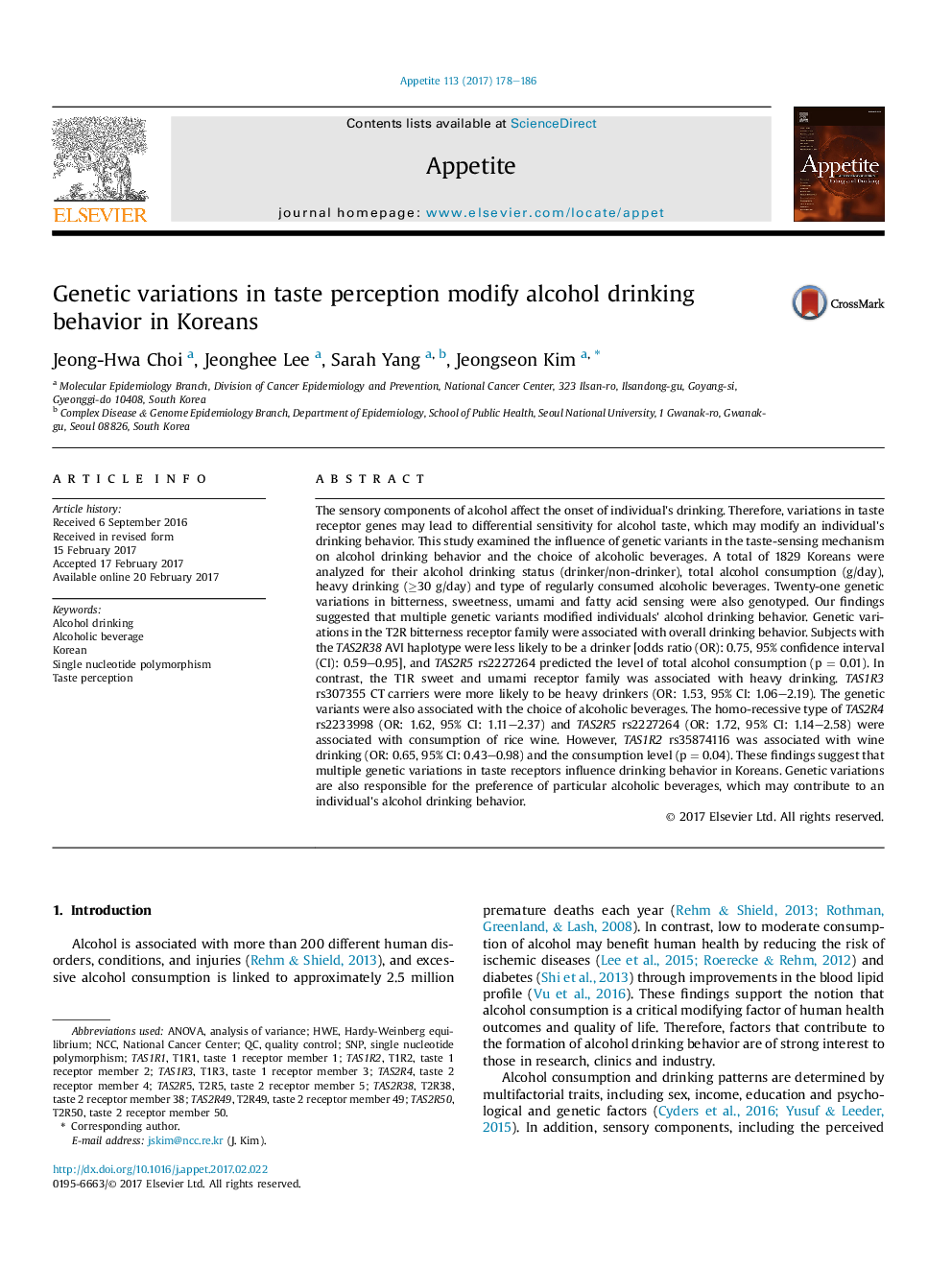| کد مقاله | کد نشریه | سال انتشار | مقاله انگلیسی | نسخه تمام متن |
|---|---|---|---|---|
| 5044175 | 1475367 | 2017 | 9 صفحه PDF | دانلود رایگان |
The sensory components of alcohol affect the onset of individual's drinking. Therefore, variations in taste receptor genes may lead to differential sensitivity for alcohol taste, which may modify an individual's drinking behavior. This study examined the influence of genetic variants in the taste-sensing mechanism on alcohol drinking behavior and the choice of alcoholic beverages. A total of 1829 Koreans were analyzed for their alcohol drinking status (drinker/non-drinker), total alcohol consumption (g/day), heavy drinking (â¥30 g/day) and type of regularly consumed alcoholic beverages. Twenty-one genetic variations in bitterness, sweetness, umami and fatty acid sensing were also genotyped. Our findings suggested that multiple genetic variants modified individuals' alcohol drinking behavior. Genetic variations in the T2R bitterness receptor family were associated with overall drinking behavior. Subjects with the TAS2R38 AVI haplotype were less likely to be a drinker [odds ratio (OR): 0.75, 95% confidence interval (CI): 0.59-0.95], and TAS2R5 rs2227264 predicted the level of total alcohol consumption (p = 0.01). In contrast, the T1R sweet and umami receptor family was associated with heavy drinking. TAS1R3 rs307355 CT carriers were more likely to be heavy drinkers (OR: 1.53, 95% CI: 1.06-2.19). The genetic variants were also associated with the choice of alcoholic beverages. The homo-recessive type of TAS2R4 rs2233998 (OR: 1.62, 95% CI: 1.11-2.37) and TAS2R5 rs2227264 (OR: 1.72, 95% CI: 1.14-2.58) were associated with consumption of rice wine. However, TAS1R2 rs35874116 was associated with wine drinking (OR: 0.65, 95% CI: 0.43-0.98) and the consumption level (p = 0.04). These findings suggest that multiple genetic variations in taste receptors influence drinking behavior in Koreans. Genetic variations are also responsible for the preference of particular alcoholic beverages, which may contribute to an individual's alcohol drinking behavior.
Journal: Appetite - Volume 113, 1 June 2017, Pages 178-186
